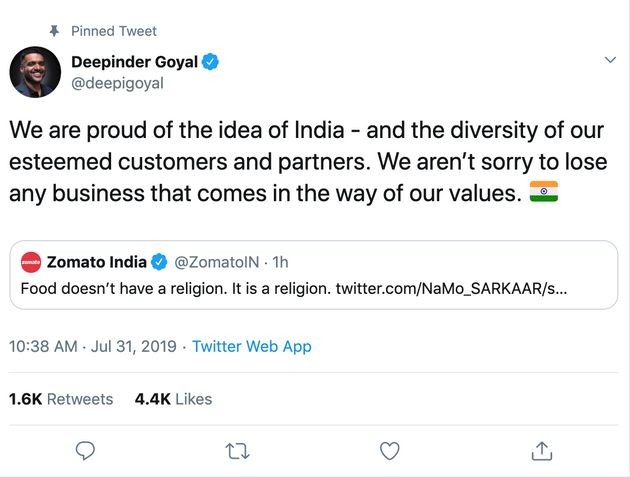What would have otherwise opened a flood of sales during the festive season, it turned out to be a complete nightmare for the brand. Whether you loved the ad or had objections – that is secondary in the present context. The Tanishq controversy, above all, leaves a trail of lessons for marketers, advertisers, brands, and PR professionals. And the lessons aren’t just India-centric – albeit each country has its own socio-political irks and challenges.
A Team That Keeps Controversies Away
For the starters, anything that can possibly stir controversies is a big no-no in marketing. Keeping aside their idealistic views, brands must avoid venturing on such water and its borderline.
Of course, at times, a message can inadvertently hit the wrong nerves; it’s not always easy to figure out whether a piece of creative can be misrepresented and misunderstood. For this reason, every company should have a team of editors, PR professionals, and key decision-makers who can work out the context of the creative and audit every whichever way it can be interpreted.
A strong and dedicated gate-keeping team can make informed decisions if to bypass the creative for publishing or disapprove it.
The Right (And Prompt) Response
Despite all the protocols and precautions, if a brand does lands in a soup, a quick and smart response is imperative before the bad publicity spirals out of control. What this response should be depends on various factors, including what went wrong with your campaign and how big the furor can go. Sometimes, retracting with an honest apology is a good idea; other times, pulling à la Zomato can overpower the uncalled objections by winning more hearts…
 (Courtesy: India Post)
(Courtesy: India Post)
Stand Up for the Values
In case, if things do go south but you aren’t wrong, despite the controversy, you may choose to stand up for your brand values and stay consistent with what you believe in. The CEO of Zomato led this with an example…

(Courtesy: HuffPost)
This may not necessarily go smoothly. But if you do believe in your campaign and the message it delivers, standing up for your values – with PR tactics at work in the backend – can sail you, through the problems, to the shore with little to no damage.
Having a Defined PR Crisis Strategy
For any brand – particularly now more than ever, when it’s uncertain how a campaign would be perceived – having a defined PR crisis strategy is almost essential. If your brand starts getting bad publicity, whether justifiably or not, you should know which buttons to hit so as to minimize the impact, speed up the recovery, and turn the tides in your favor.
Admittedly, outlining one such PR crisis strategy is far from easy. Executing it is even more challenging, which should include real-time data to improve its effectiveness. For example, if you’re in the mix of controversies, adding real-time data from sentiment analysis on key channels to your already defined strategy is needed for better returns.
Teaming Up With the Specialists
In such a case, be it in planning, managing, and executing a PR crisis strategy, you should consider teaming up with best digital marketing agency Canada, USA or India-based. A good company with PR specialists and social media experts can help you better.
Moreover, this isn’t just about social media platforms. In addition to public outrage, if your brand has also garnered bad press, it will show up on search results, which could be fatal for your business. In this department, hiring one of the good SEO companies in California, Kolkata or anywhere for that is a good idea. They can help you with online reputation management, outdoing the bad press on SERP with the right message of your brand.
Staying Prepared for the Worse
Many businesses just assume it won’t happen with them. In reality, if you’re producing content – whether on LinkedIn, OTT or TV – you never know when a wrong string is pulled and your brand is in the middle of a controversy. Many big and small brands have faced this; so can you. Having a strong and smart PR management strategy is no more optional. Your business needs it.
FAQ
1. What is a PR crisis?
A PR (Public Relations) crisis is a situation that can harm a brand's reputation and significantly impact its operations. It usually arises from a controversial event, scandal, or negative publicity which draws widespread attention and criticism. The event may be a mistake, misunderstanding, or mishap that puts the brand in an unfavorable light.
2. How can brands avoid a PR crisis?
Brands can avoid PR crises by maintaining transparency, proactively managing potential issues, and being aware of cultural sensitivities. Regular audits and reviews can help identify possible problems before they escalate. It's also crucial for brands to uphold ethical standards and good business practices. Engaging in open dialogue with stakeholders can help mitigate any misunderstandings.
3. What controversial topics should a brand avoid?
Brands should ideally steer clear of divisive issues like politics, religion, and sensitive social subjects unless they are directly related to their operations. They should also avoid making offensive or disrespectful remarks about different cultures, races, or social groups. It's important for brands to practice cultural sensitivity and inclusivity.
4. How should a brand respond to a PR crisis?
During a PR crisis, a timely and truthful response is key. Brands need to face the issue head-on, acknowledging what's happened without delay. It's crucial to take onus if the situation calls for it. Clear, concise communication about what's being done to fix the problem is a must. To effectively handle the crisis, brands should tune into public sentiment, show genuine understanding, and pledge to do better. This helps in regaining trust and restoring brand reputation.
Audio: Tanishq, PR Crisis And What Brands Can Learn From This Episode




